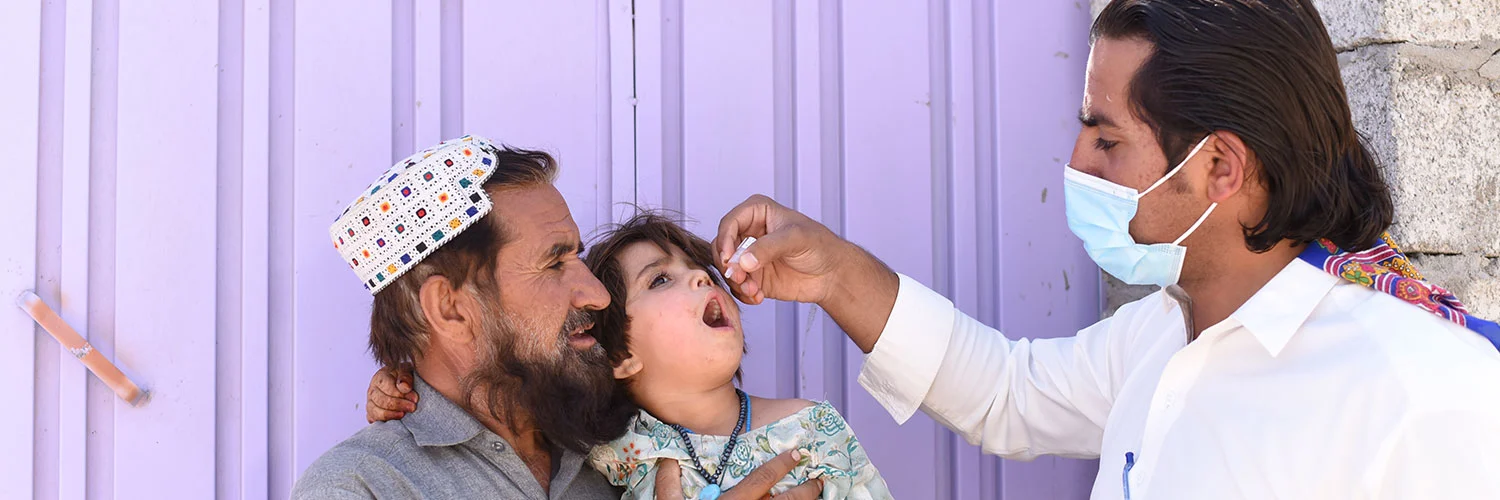6 September 2019, Cairo, Egypt ‒ The Islamic Advisory Group for Polio Eradication (IAG) held its sixth annual meeting reaffirming its commitment towards global polio eradication efforts and reiterating its trust in the safety and effectiveness of the poliovirus vaccine as a preventative and life-saving tool that protects children.
The meeting was hosted in Cairo by His Eminence Dr Ahmed El-Tayyeb, the Grand Imam of Al Azhar Al Sharif, and co-chaired by His Eminence Sheikh Dr Saleh Bin Abdullah Bin Humaid, President of the International Islamic Fiqh Academy (IIFA). They both reiterated the group’s ongoing support to the Global Polio Eradication Initiative and discussed progress and challenges faced by polio-endemic and at-risk countries in 2019.
In a statement issued at the end of the meeting, the IAG noted with concern the persistence of poliovirus circulation in pockets of missed children in Afghanistan and Pakistan and that some of those children are missed due to the refusal of the family or parents. IAG called upon all parents to immunize their children against polio and all other vaccine-preventable diseases for the health of their community as guided by the teachings of Islam.
It also expressed concern over the ban on vaccination activities in parts of Afghanistan and urged the concerned parties to facilitate these activities for the safety of all children.
The IAG is an Islamic consortium that was established in 2013 between Al Azhar Al Sharif, the IIFA, the Organisation of Islamic Cooperation (OIC) and the Islamic Development Bank (IsDB), along with other religious scholars and technical experts.
Dr Nazeer Mohamed Ayyad, Secretary General of the Islamic Research Institute, welcomed the participants on behalf of the Grand Imam and commended the work of the group.
“Polio eradication is one of the critical health issues upon which the future of communities and countries is based,” he said. “Its importance is attributed to the fact that it shows the deep relationship between religion and science. Religious scholars realized early on the link between Shariah teachings and medicine, as both aim to serve humanity, fight disease and enhance the well-being of all people. Taking care of children, protecting them and enhancing their potential are among the main purposes of Islamic Shariah.”
On his part, Dr Bin Humaid warned of the importance of the fight against polio and the need to do more.
“We meet today while the polio situation is becoming even more serious and of higher importance as we are trying to serve children, patients and people who are the most vulnerable,” he said. “All partners are requested to exert greater effort to overcome the ever increasing challenges, strengthen partnerships with concerned stakeholders and interact with the initiatives aiming to accelerate the eradication of polio.”
“No child should die or be left with a disability just because their parents refused to get them vaccinated or treated due to misconceptions while means of prevention and treatment are available,” he added.
Representing His Excellency Dr Bandar Hajjar, President of the IsDB, Mr Mohamed Al-Austa spoke of the financial support being provided to polio-endemic countries to help them finally eradicate polio.
“The challenges facing polio eradication require more efforts and further coordination among all stakeholders to control the situation and resume the vaccination campaigns. The IsDB has endorsed a new US$ 100 million fund to support the polio programme in Pakistan, bringing the financial support provided by the bank and the Bill & Melinda Gates Foundation to US$ 427 million.”
Dr Zsuzsanna Jakab, WHO Deputy Director-General, congratulated the IAG for completing 6 years of work supporting polio eradication during which significant progress has been made.
“Seeing the IAG flourish and expand over the years shows how this exemplary partnership can yield great results for the health of all communities, with the combination of religious, political and financial leadership,” Dr Jakab said. “The IAG’s expanded mandate to cover maternal and child health is a great investment in health.”
Delivering a message from Dr Ahmed Al-Mandhari, WHO Regional Director for the Eastern Mediterranean, Dr Rana Al-Hajjeh, Director of Programme Management, pointed out the significance of this moment in polio eradication history. “We stand at a historically critical juncture. Only for the second time, humankind is poised to completely eradicate a disease off the face of the Earth after smallpox,” she said.
“In the past, around 1000 children worldwide were infected by polio every day. Yet, with the development of a safe vaccine that can be used to immunize every child, we have succeeded in bringing a 99.9% decline in the number of polio cases, resulting in more than 18 million people walking today who would have otherwise been paralysed by polio.”
“The persistence of polio cases in Afghanistan and Pakistan raises our concern for the children of those countries who have the right to be protected from this crippling disease just like other children around the world.”

